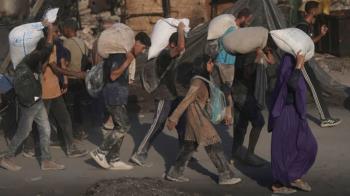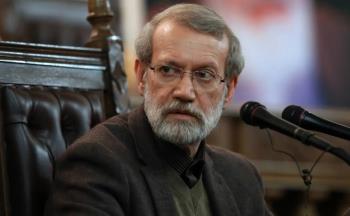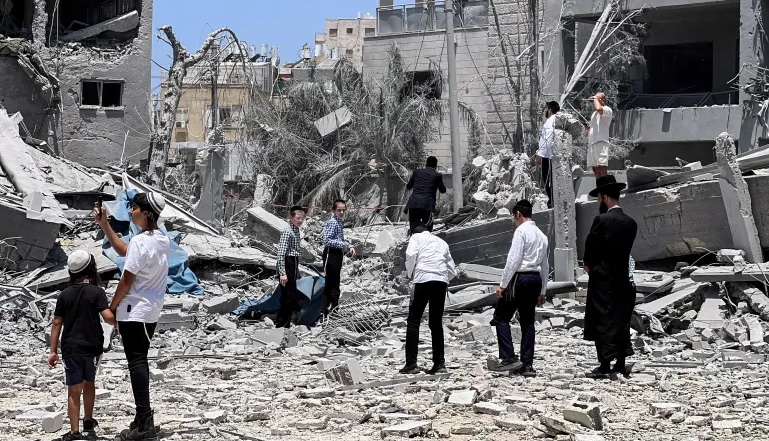Alwaght- It has not yet been two months since the ceasefire was declared in the 12-day war between the Israeli regime and Iran, but some social media accounts affiliated with Tel Aviv and even some experts claim that Israel is preparing for a second round of conflict with Iran. Some experts on the Arabic-language media like Al Arabiya and Aljazeera claim that Israel is seeking an opportunity to start war afresh against Iran. But regardless of such claims, how possible is a new war against Iran for the Israelis?
Failure in goals
What more than anything makes a second round possible is the failure of the Israelis to realize their goals in the 12-day war.
Despite Israel’s insistence on targeting Iran’s nuclear facilities, Israeli fighter jets mainly assassinated high-ranking Iranian government and military officials. This action was a clear attempt to overthrow the Iranian political system, although the stability of the Iranian political system and the extensive missile responses to strategic targets in the heart of the Israeli regime showed that Tel Aviv’s calculations to overthrow the Iranian political system in a military action had been seriously flawed.
Even if Tel Aviv considers its goal to be the elimination of Iran’s nuclear program, it has not been able to achieve its desired result in this goal either, because despite the material losses, Iran’s nuclear knowledge is a native science with Iranian scientists that cannot be eliminated. Perhaps the material losses to the nuclear facilities have caused temporary and short-term delays in Iran’s nuclear activities, but in general, no fundamental change has been made in these activities, and it does not seem that the Israeli regime’s aggression has had any impact on the continuation of Iran’s nuclear program.
Accordingly, Israel’s failure to achieve its goals in the 12-day military war is one of the reasons that may lead Tel Aviv to plan a second round of attacks on Iran.
Tel Aviv’s challenges to start a new war with Iran
At the same time, start of a new military action against faces major challenges and obstacles:
Need for American green light
Political analysts tell Aljazeera that Israel is already seeking an opportunity to start a new conflict with the Islamic Republic, but it needs the US authorization, something Washington may now not be willing to give.
Meir Javadanfar, a lecturer on Iran at the Reichman University in Israel, emphasized in an interview with Aljazeera that in order to carry out a second round of attacks on Iran, Israel must collect or provide credible information to show that Iran is rebuilding or repairing its nuclear program and, based on the information, it can convince the US administration to join its war, but it is currently very difficult for Tel Aviv to collect such evidence.
“Israel needs the consent of the United States and its President, Trump, to carry out a second round of attacks, but given America’s concerns about Israel’s attacks on Syria, the likelihood of the United States agreeing to a second round of attacks on Iran is much lower, because Washington does not want a new war front to open in Iran at the same time as Israel’s conflict in Syria, Lebanon, and Gaza,” said Javdanfar.
On the other hand, Trump, according to Javdanfar, is trying to portray himself as anti-war, and Trump’s joining Netanyahu in another war with Iran will deal the biggest blow to Trump’s image among his supporters who want the US to stay away from any new war in the region. Uri Goldberg, an analyst and expert on Iran affairs in Tel Aviv, also told Aljazeera that Netanyahu is trying not to deviate from any goal that Trump has outlined regarding military cooperation, and if Trump does not give Netanyahu the green light to attack Iran again, Netanyahu will not take this action either, because Tel Aviv needs continued American support on the Gaza and Lebanon fronts, and Israel does not want this cooperation to be undermined.
Economic limitations
For vital issues including economic reasons, Israel wants war concluded in a short time and it is far from likely that the new war with Tehran will be short. Iran has warned that if Israel wages a new war, it will use missiles with way greater destruction power and many interpret this warning as meaning entry to a long-term war. The Israeli economic sector of Israel has suffered dearly from long-term and costly war in Gaza that has so far cost Tel Aviv $67 billion, and entry to a new long-term war can cost Israel several-fold costs.
The June war with Iran, known as the 12-day war, also cost Israel hundreds of millions of dollars a day, and Israel’s financial losses have been estimated at more than $1.5 billion. Accordingly, Israel is trying to adjust its renewed military confrontation with Iran according to the limitations of its domestic economy. Ehud Ilam, an expert at the Royal Institute of Defense and Security Studies in the Britain, concluded in a note that Israel had to end the war with Iran very quickly, otherwise its economy could face a major crisis.
Another estimate, by British Royal Institute for Defense and Security Studies, suggests that Israel in the first two days of war spent about $1.45 billion and in the first week the costs reached $5 billion. In fact, during the war, Israel spent $725 million daily, including $593 million for offensive operations and $132 million for air defense against Iranian missile strikes.
Military limitations
Iran is over 1,500 kilometers far from Israel. Although the Israeli fighter jets reached Iran, the Israeli air force is made for close destinations. The Israeli bombers including the F-15, F-16, and F-35 cam use fuel tankers to reach Iran and return home. But for a long-term war, Israel needs huge air fuel tankers because the Israeli air force squadrons include tens of fighters and providing fuel using small tankers is impossible.
The Israeli Air Force has a half-century-old tanker aircraft (a Boeing 707) that flew about 600 aerial refueling missions during the recent confrontation with Iran. However, since these tankers were in short supply, some Israeli aircraft were refueled by American tankers. Israel is seeking to receive new Boeing KC-46 tankers, and until these larger tankers arrive, the sir force faces a challenge to maintain continuous refueling without American assistance.
Furthermore, although Israel’s fighter-bombers have advanced and sophisticated weapons systems, some of them have been in service for two decades or more, and if the war with Iran drags on, keeping the 20-year-old fighter jets operational could be a challenge. Tel Aviv is forced to avoid exhausting its air force in a long confrontation with Iran, especially since the Israeli air force may also be facing threats from other fronts, such as Lebanon and Yemen. The Israeli air force may still be able to fight in the 12-day war, but it would be weaker and more exhausted. Meanwhile, if the confrontation with Iran continues for months, the likelihood that one or more Israeli fighter jets will eventually be targeted by Iran and its pilot killed or captured is very high. If an Israeli air force soldier is captured or killed, it will be a huge psychological blow to the Israeli army.
On the other hand, the Israeli Air Force does not have heavy bombers, so the Israeli regime faces limitations in targeting strategic and underground sites and will not be able to launch major attacks in Iran without American support. This is another important limitation of the Israelis in a long war with Iran. In his recent meeting with the CEOs of the military industries and senior officials of the Israeli Ministry of Defense, Director-General of Israeli Defense of Defense Major General Amir Baram clearly stated the limitations on the number of Israeli weapons and missiles, and the same limitation on missiles and weapons is also true for Israel’s air defense. The US also has specific reservations for supplying missiles and weapons to Israel, and the Trump administration is not able to export missiles and military weapons to Israel in any quantity it wants without Congressional authorization. From this perspective, Israel’s weapons and missile limitations in the face of a long war with Iran should also be taken into account.
Iran is not weak
Despite the Israeli attacks on resistance forces as Iranian allies over the past two years, Tehran has managed to restore its power. This estimate has been made by Bemo Nori, a researcher at St. George Center. He believes that Iran’s military cooperation with Russia and China has deepened, weapons have been imported, and nuclear program has been resumed.
On the opposite side, Israel is facing deep home gap and social tensions. The far-right coalition led by Netanyahu is seeking to expand Gaza war but it is facing major opposition at home. The Israeli economy, heavily interwoven into the global markets, cannot tolerate long-term instability and most importantly the damages caused by Iran have exceeded the Israeli expectations.
For Western and Israeli strategists, the fall of government of Bashar al-Assad in Syria set a pattern to weakening Iran and final regime change in Tehran, but this comparison is a mistake and Iran is no Syria. The collapse of the regime and the rapid establishment of a new government in Syria took place in a rapid process, but in Iran we are faced with strong institutions, military depth, an identity and an existence based on resistance, and these characteristics have made Iran a fundamentally different and more resilient country that will not easily collapse in war.
Nori believes that 12-day war disclosed depth of the Israeli miscalculation, since Iran’s power does not rest on sectional motives or proxy groups, rather, it is non-central and deep-rooted and the Islamic Republic of Iran, though having sustained damage during war, did not collapse in recent war and it is now seeking to expand and develop its power factors with stronger determination than ever.



























